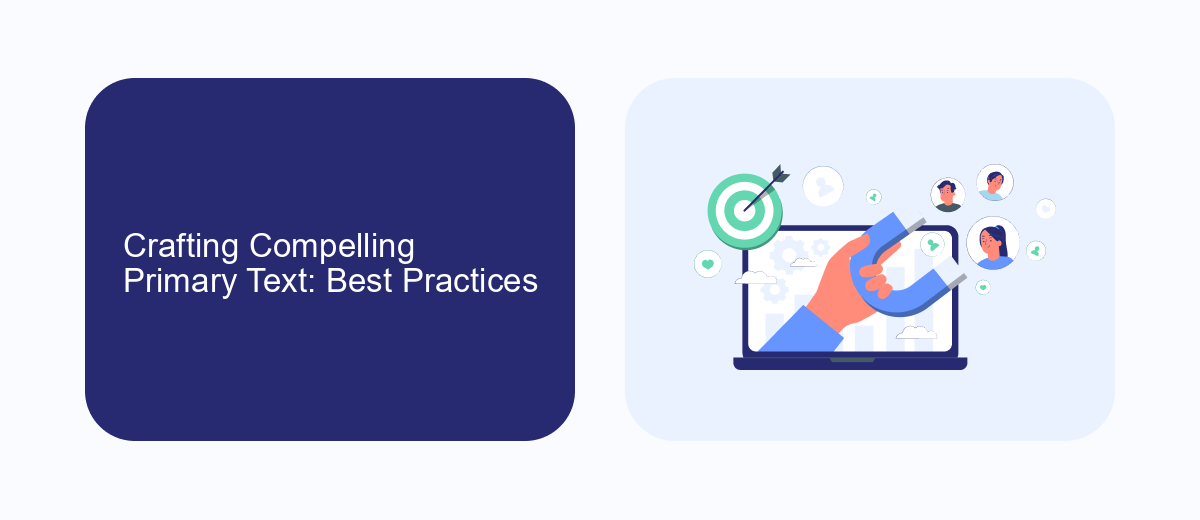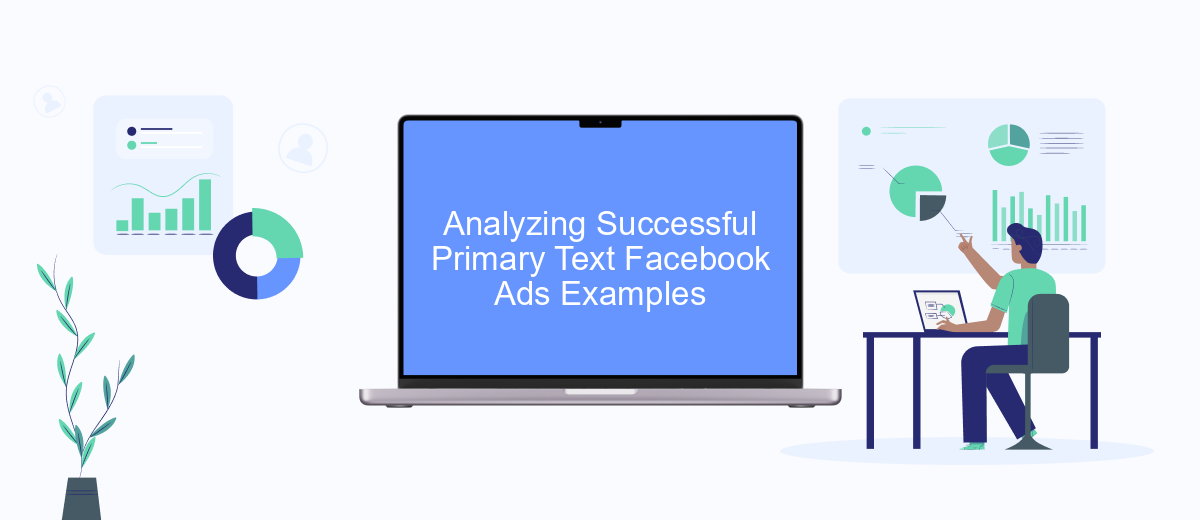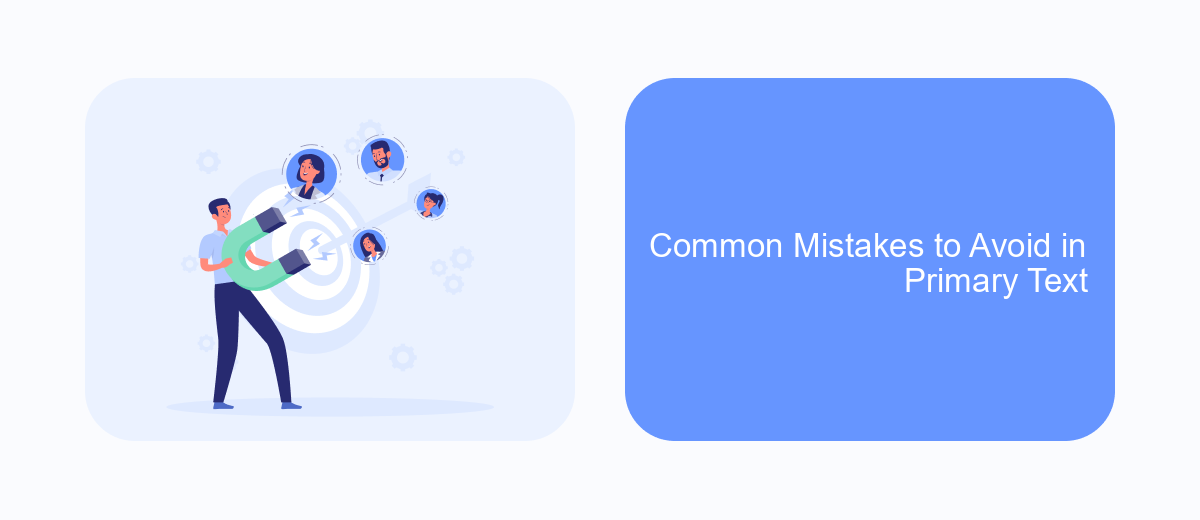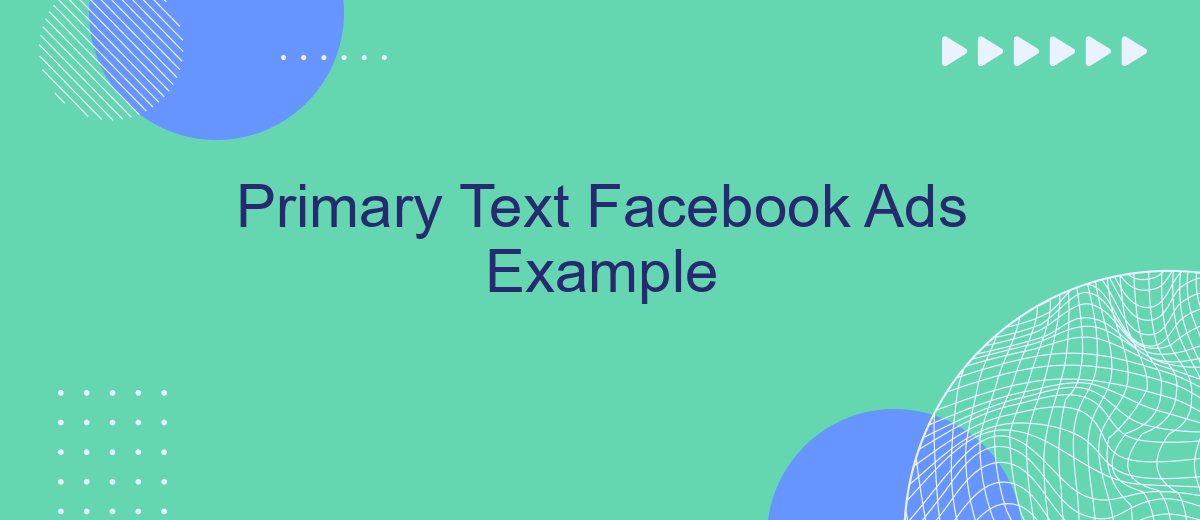In the ever-evolving landscape of digital marketing, mastering Facebook Ads is essential for businesses aiming to reach their target audience effectively. Crafting compelling primary text for these ads can significantly impact engagement and conversion rates. In this article, we explore successful examples of primary text in Facebook Ads, highlighting strategies that capture attention, convey value, and drive action in a concise yet powerful manner.
Understanding the Power of Primary Text
In the realm of Facebook advertising, the primary text holds significant influence over the success of an ad campaign. This text, appearing directly above the creative, serves as the introduction to your message and plays a crucial role in capturing the audience's attention. A well-crafted primary text can effectively convey the essence of your offer, evoke emotions, and prompt users to take action.
- Clarity: Ensure the message is straightforward and easily understandable.
- Engagement: Use compelling language to spark interest and curiosity.
- Relevance: Tailor the text to resonate with the target audience's needs and preferences.
- Call to Action: Include a clear directive to guide users on the next steps.
By mastering the primary text, advertisers can enhance the effectiveness of their Facebook ads, leading to improved engagement rates and higher conversion rates. This component is not just about conveying information; it's about making a connection with the audience and encouraging them to interact with your brand. Crafting a powerful primary text can be the difference between a successful campaign and one that fails to meet its objectives.
Crafting Compelling Primary Text: Best Practices

Creating compelling primary text for Facebook ads is crucial for capturing attention and driving engagement. Start by understanding your audience's needs and preferences. Craft a message that resonates with them, using language that is clear, concise, and persuasive. Highlight the key benefits of your product or service, and include a strong call-to-action to guide potential customers on what to do next. Remember to keep the tone consistent with your brand voice to maintain authenticity and trust.
To enhance the effectiveness of your primary text, consider using tools like SaveMyLeads to streamline lead management and integration processes. By automating data transfers from Facebook lead ads to your CRM or email marketing platform, you can ensure a seamless follow-up process, allowing you to focus on crafting even more engaging content. Additionally, regularly test different variations of your primary text to see what resonates best with your audience, refining your approach based on performance data.
Analyzing Successful Primary Text Facebook Ads Examples

Analyzing successful primary text in Facebook ads involves understanding the elements that capture attention and drive engagement. Effective primary text is concise yet informative, providing enough detail to entice the audience without overwhelming them. It should align with the ad's visual and overall message to create a cohesive narrative.
- Clarity and Brevity: Successful ads often use clear and straightforward language to communicate their message quickly.
- Emotional Appeal: Ads that evoke emotions tend to perform better, as they resonate more deeply with the audience.
- Call to Action: A compelling call to action (CTA) encourages users to take the next step, whether it's clicking a link or making a purchase.
By examining these elements in successful ads, marketers can gain insights into what works and apply these strategies to their own campaigns. Testing different approaches and analyzing performance metrics are crucial to refining ad copy and maximizing impact. Ultimately, understanding the audience and tailoring the message to their needs and preferences is key to creating effective Facebook ads.
Common Mistakes to Avoid in Primary Text

When crafting primary text for Facebook ads, it's crucial to strike a balance between being informative and engaging. Many advertisers make the mistake of either overloading their text with information or being too vague, which can lead to a lack of interest or confusion among potential customers. Ensuring clarity while maintaining intrigue is key.
Another common pitfall is neglecting the importance of the first few words. These initial words are crucial as they are often the only part visible before the "See More" button. If the start of your text isn't captivating, users may not be inclined to read further. Therefore, make sure the beginning of your text is strong and attention-grabbing.
- Avoid using jargon or overly technical language that might alienate your audience.
- Don't make the text too lengthy; keep it concise and to the point.
- Refrain from using all caps or excessive punctuation, as it can appear aggressive.
Ultimately, the primary text should complement the visual elements of your ad, providing necessary context without overshadowing the imagery. By steering clear of these common mistakes, you can craft compelling primary text that enhances the overall effectiveness of your Facebook ads.
Testing and Optimizing Your Primary Text for Better Results
Testing and optimizing your primary text in Facebook ads is crucial for maximizing engagement and conversions. Start by creating multiple variations of your primary text to see which resonates best with your audience. Use A/B testing to compare different versions, altering elements such as tone, length, and call-to-action. Regularly analyze the performance metrics of each variation, focusing on click-through rates and conversion rates. This data-driven approach will help you identify the most effective messaging strategies.
To streamline the optimization process, consider using automation tools like SaveMyLeads. This service can help you integrate your Facebook Ads account with other platforms, allowing for seamless data transfer and analysis. By automating the flow of lead information, you can quickly adjust your primary text based on real-time feedback and insights. Continuously refining your primary text based on testing results and leveraging integration tools will ensure your ads remain relevant and compelling to your target audience.
FAQ
What is a primary text in Facebook Ads?
How long should the primary text be in a Facebook ad?
Can I test different primary texts for my Facebook Ads?
How can I automate the process of updating my Facebook Ads' primary text?
What should I include in the primary text to make it effective?
Are you using Facebook Lead Ads? Then you will surely appreciate our service. The SaveMyLeads online connector is a simple and affordable tool that anyone can use to set up integrations for Facebook. Please note that you do not need to code or learn special technologies. Just register on our website and create the necessary integration through the web interface. Connect your advertising account with various services and applications. Integrations are configured in just 5-10 minutes, and in the long run they will save you an impressive amount of time.
